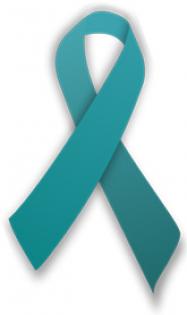Ovarian cancer is often referred to as the ‘silent killer’ because it’s difficult to detect. Each year more than 1,200 Australian women are newly diagnosed and it can affect women of all ages.
My colleague, Associate Professor Deborah Marsh from the Kolling Institute of Medical Research, is part of a dedicated team of researchers whose focus is to gain a better understanding of ovarian cancer.
A/Prof Marsh shares her insights on how research can improve detection and diagnosis.
Who is at risk of ovarian cancer?
Known risk factors include increasing age, a family history of ovarian or breast cancer, smoking and obesity. Fortunately, women who’ve had children, breastfed and used oral contraceptives are at a lower risk.
Are there any tests that screen for ovarian cancer?
There are currently no screening tests. A pap smear is a screen for cervical cancer but will not detect ovarian cancer. A marker called CA-125 measured in the blood is not reliable for screening as it can be affected by many things, including menstruation.
What are four facts about ovarian cancer women need to know?
As there is no early detection test, women are often diagnosed at a late stage when the cancer has spread beyond the ovaries and prognosis is poor. If ovarian cancer is diagnosed at an early stage, women have a much greater chance of being alive and well after five years.
Women need to be vigilant as symptoms of ovarian cancer can be vague and ‘everyday’. Symptoms include abdominal bloating, abdominal or back pain, changes in toilet habits, indigestion or heartburn, fatigue, appetite loss or feeling full quickly and unexpected weight gain or loss.
The average age of Australian women diagnosed with ovarian cancer is around 63 years. However, younger women can also die of this disease.
The five-year relative survival rate for women with ovarian cancer is 43%. By comparison, the five-year survival for breast cancer is just under 90% for Australian women.
What is the Kolling Institute doing to tackle ovarian cancer?
We study both cell line models of ovarian cancer and tumour samples from women with ovarian cancer, which are banked in the Kolling Institute Tumour Bank.
These ‘banked’ samples are a critical resource, allowing our researchers to understand how ovarian cancer develops, how it grows, how it spreads and how it responds to treatment. This information helps us provide more personalised treatment based on individual patient and tumour characteristics.
We’re also working to understand how certain genes and proteins may contribute to ovarian cancer. This includes studying very small molecules, known as micro-RNA, in blood and tumour samples as markers of disease with the aim of improving diagnosis.
Reproductive hormones are another area of investigation, as we believe these hormones may have a role in the development and progression of ovarian cancer.
How will your research help women now and in the future?
Our ultimate goal is to find a cure.
However, in the short term we aim to manage ovarian cancer as a non life-threatening condition by putting our current research into practice.Our own discoveries, along with those of our colleagues and collaborators worldwide, will lead to improved diagnostics and new and more effective treatments.
What do you see as the greatest challenge in ovarian cancer research?
One major challenge is to achieve earlier diagnosis. Research to date does not provide evidence that population screening tests, such as pelvic examination, ultrasound and measurement of CA-125, reduce mortality from ovarian cancer. New markers are urgently needed to assist in diagnosing ovarian cancer at an earlier stage so women will have a greater chance of survival.
How important is community support for ovarian cancer research?
Ovarian cancer can affect all the women we love – our mums, grandmothers, partners, sisters, daughters, nieces, aunties and friends. Community support is vital to enable Australian researchers to bring their ideas to fruition and make the critical breakthroughs that will improve the prognosis for women with ovarian cancer.
Raising awareness of ovarian cancer will help us to reduce the impact of this disease on Australian women and their families. If you’d like to support ovarian cancer research at the Kolling Institute you can make a donation online at www.kolling.com.au
For more information about ovarian cancer please visit Cancer Australia.


















__small.png)










